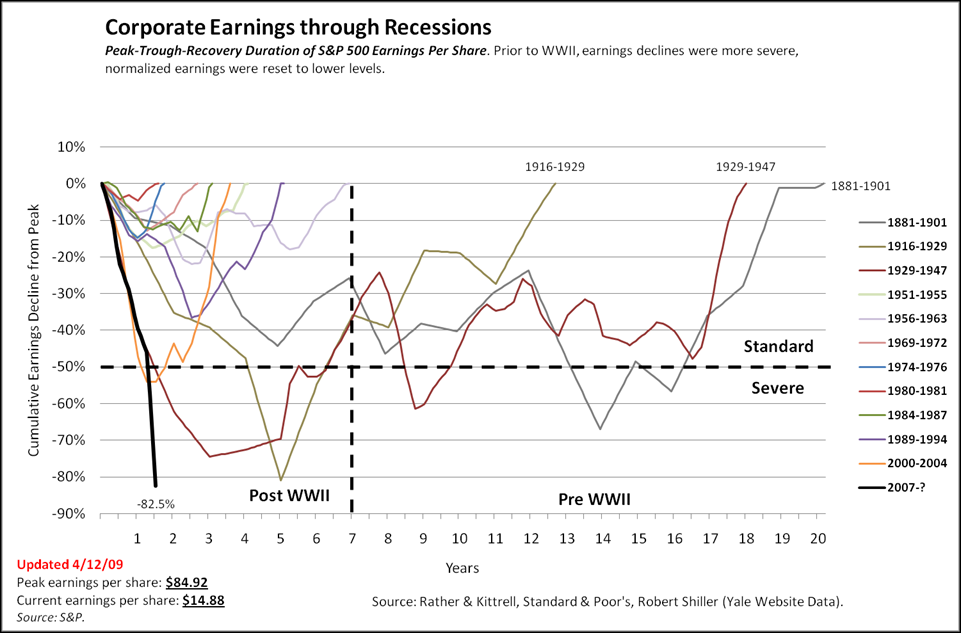SEASONALLY ADJUSTED DATA
In the week ending April 11, the advance figure for seasonally adjusted initial claims was 610,000, a decrease of 53,000 from the previous week's revised figure of 663,000. The 4-week moving average was 651,000, a decrease of 8,500 from the previous week's revised average of 659,500.
The advance seasonally adjusted insured unemployment rate was 4.5 percent for the week ending April 4, an increase of 0.1 percentage point from the prior week's unrevised rate of 4.4 percent.
The advance number for seasonally adjusted insured unemployment during the week ending April 4 was 6,022,000, an increase of 172,000 from the preceding week's revised level of 5,850,000. The 4-week moving average was 5,796,000, an increase of 146,000 from the preceding week's revised average of 5,650,000.
The fiscal year-to-date average for seasonally adjusted insured unemployment for all programs is 4.781 million.
UNADJUSTED DATA
The advance number of actual initial claims under state programs, unadjusted, totaled 607,971 in the week ending April 11, a decrease of 18,892 from the previous week. There were 370,949 initial claims in the comparable week in 2008.
The advance unadjusted insured unemployment rate was 4.7 percent during the week ending April 4, a decrease of 0.1 percentage point from the prior week. The advance unadjusted number for persons claiming UI benefits in state programs totaled 6,305,445, a decrease of 146,611 from the preceding week. A year earlier, the rate was 2.3 percent and the volume was 3,088,902.
Extended benefits were available in Alaska, California, Connecticut, Idaho, Indiana, Massachusetts, Michigan, Montana, Nevada, New Jersey, North Carolina, Oregon, Pennsylvania, Puerto Rico, Rhode Island, South Carolina, Vermont, Washington, and Wisconsin during the week ending March 28.
Initial claims for UI benefits by former Federal civilian employees totaled 1,074 in the week ending April 4, a decrease of 4 from the prior week. There were 1,707 initial claims by newly discharged veterans, a decrease of 124 from the preceding week.
There were 18,597 former Federal civilian employees claiming UI benefits for the week ending March 28, an increase of 516 from the previous week. Newly discharged veterans claiming benefits totaled 28,752, an increase of 304 from the prior week.
States reported 2,148,241 persons claiming EUC (Emergency Unemployment Compensation) benefits for the week ending March 28, a decrease of 103,543 from the prior week. EUC weekly claims include both first and second tier activity.
The highest insured unemployment rates in the week ending March 28 were in Michigan (8.0 percent), Oregon (7.9), Rhode Island (7.1), Idaho (7.0), Wisconsin (7.0), Pennsylvania (6.7), Nevada (6.2), Alaska (6.0), Montana (6.0), and Vermont (5.9).
The largest increases in initial claims for the week ending April 4 were in Michigan (+5,408), Missouri (+4,986), Texas (+3,734), New Jersey (+2,368), and Pennsylvania (+2,194), while the largest decreases were in California (-4,708), Ohio (-2,716), Alabama (-2,421), Florida (-1,539), and Wisconsin (-1,078).



 Need to get people to stop feaking out and saving TOO much? You'll hear them talk up the "signs of recovery".
Need to get people to stop feaking out and saving TOO much? You'll hear them talk up the "signs of recovery". 